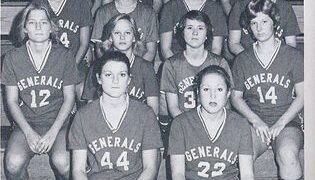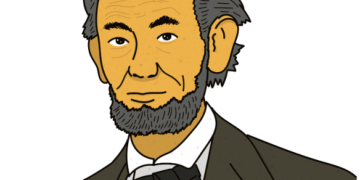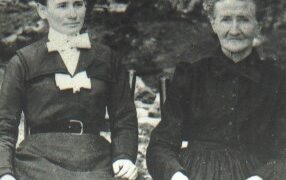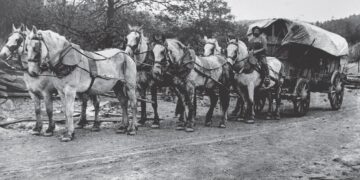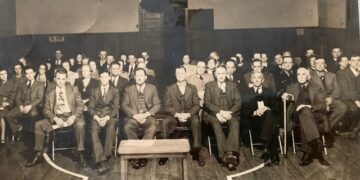Do you long for the good old days when you could trust your neighbors, and churches were full on Sundays? If so, you may not have read much local history. Life in Rockingham county was pretty lawless in early times. The county sheriff’s primary job was to collect taxes, not go out on patrol. Local bullies could intimidate entire neighborhoods. Gospel-preaching ministers tried to convert them and turn their lives around, but it was a tough job for peaceful traveling ministers.
Sometimes the situation called for a different style of minister. Rev. George B. Rimel fit the bill. The following story about Rimel and Turleytown is from History of the Church of the United Brethren in Christ by Rev. A. P. Funkhouser, published in 1921. Rev. Rimel served Bridgewater and other Rockingham County churches from 1856-1857.
“Before his conversion, George B. Rimel was a hardworking farmer, and after conversion he still labored with his hands a good deal. He was without human polish and destitute of the learning of the schools…” Rimel “possessed a fine physique,—healthy, ruddy, beef-eating appearance,—a notably handsome person…His mind moved like a timber wagon loaded with Bible facts…
The work Rimel performed could not have been done by anyone else. He was forceful and his style of preaching was much needed in the early history of the conference…He gave sledgehammer blows at sin without fear of the consequences, for there was no fear in him…
During a revival in Harbaugh’s Valley, Maryland, his speech was so plain and hard that the people were greatly offended. Some half dozen men made an attack on him as he was going home from the meeting. ‘Boys,’ said he, ‘let me alone. Don’t touch me. If you do, I will straighten my arm on you that the Lord has given me with which to defend myself, and you will think a horse has kicked you. I don’t want to hurt you.’ There was no further trouble in that neighborhood.
At another time, while on his way to Brock’s Gap, Rimel lodged with Andrew Horn, a prominent member near Turleytown. There was a union church in his neighborhood, and it was a moderately good building for those days. Horn was asked why it was not used and was told that every preacher had been run off by rowdies, this element having sworn there should be no more preaching in Turleytown. Rimel asked Horn to circulate an appointment, an evening in the following week, and he would preach on his return from the Gap. Horn at length consented, and there was a large congregation.
The services began in the regular way, and until the middle of the sermon the house was quiet. Then a disturbance arose in the farther end of the room. In a gentlemanly way, Rimel asked the toughs to behave themselves. This only made matters worse. Then the preacher paused in his discourse, and asked if some person would give him the names of the disturbers. The rowdies bawled out their own names, and these were written down by Rimel. ‘Tomorrow,’ said he, ‘I shall see the proper officers of the law, and have you arrested and presented for your unruly conduct here tonight.’
There was a quiet during the remainder of the services, and another appointment was made. In the morning Rimel had to pass through the town, where a crowd of furious men were awaiting him.
The leader of the gang caught the preacher’s horse by the bridle and demanded that the paper containing the names be given up. Rimel refused, and the bully then attempted to pull him off the horse.
‘Hold on,’ said Rimel, ‘I can get off myself.’ As he dismounted, he slipped off his overcoat, and then made the following announcement: ‘I am not afraid of all the people in Turleytown, and I can whip them all if they will fight fair. I can whip the whole pack of you. I shall only need to get in one or two licks on a man, and every man I hit will never know what hurt him.’
He then made a pass at the rowdy captain, who at once showed the white feather and ran. Rimel remounted but had gone only a little way when someone shouted for him to stop. The preacher turned about. The spokesman said the men were sorry for what they had done, and if the matter were dropped, they would be his friends and protect him in his meetings. For they much admired a brave man. There were no more interruptions, and Turleytown became a reformed place.”
** Brocks Gap Heritage Day is April 20, 10-4 at J. Frank Hillyard Middle School, featuring 3 excellent programs; more details next month. Free event! **

